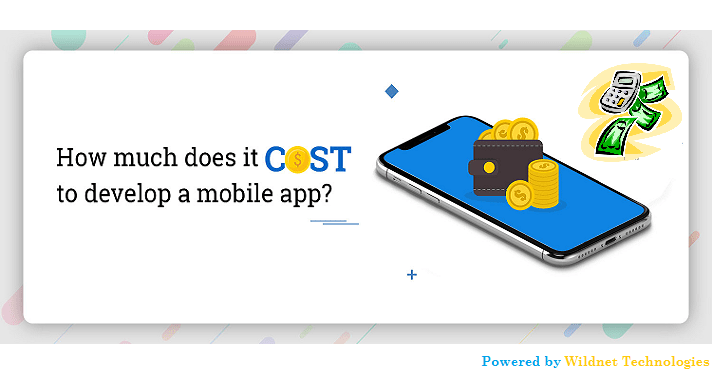AI marketing automation uses artificial intelligence technologies to streamline and optimize marketing processes. From data analysis to campaign execution, AI agents can handle repetitive tasks, enabling marketers to concentrate on strategy and innovation. How are you using AI agents to automate marketing workflows? This is a vital question every modern marketer must consider to remain competitive. Far from being a futuristic idea, AI-powered marketing is a present-day reality reshaping the digital landscape.
The Role of AI in Marketing
AI plays a crucial role in transforming traditional marketing practices. By analyzing vast amounts of data, AI agents can identify patterns and trends that would be impossible for humans to detect. This capability enables marketers to make data-driven decisions, optimize campaigns in real-time, and deliver personalized customer experiences.
AI’s ability to process large datasets quickly and accurately enhances marketers’ understanding of customer behaviors. This understanding allows for more precise targeting and improved customer engagement. Moreover, AI’s predictive capabilities can foresee market trends, assisting marketers in adjusting their strategies proactively.
The integration of AI in marketing fosters an environment of continuous improvement. AI systems learn from new data and refine algorithms, resulting in more effective marketing strategies. This evolution ensures that marketing practices remain relevant in an ever-changing digital landscape.
Key Benefits of AI Marketing Tools
- Efficiency and Productivity: AI marketing tools automate mundane tasks such as scheduling social media posts, sending emails, and analyzing customer data. This automation frees up valuable time for marketers to focus on creative and strategic tasks.
Automation not only saves time but also reduces human error. By ensuring tasks are completed consistently and accurately, AI tools enhance the overall quality of marketing efforts. This reliability is crucial in maintaining brand reputation and customer trust.
Furthermore, the speed at which AI tools operate allows quicker turnaround times. This agility enables marketers to respond swiftly to market changes and capitalize on emerging opportunities.
- Data-Driven Insights: AI agents analyze data at a scale and speed that humans cannot match. This ability provides marketers with actionable insights, allowing them to tailor campaigns to specific audiences and improve overall performance.
These insights are invaluable for understanding customer preferences and behavior patterns. By leveraging this information, marketers can create more relevant and impactful campaigns that resonate with their target audience.
Additionally, AI-driven insights facilitate more effective resource allocation. By identifying high-performing strategies, businesses can focus their efforts where they’ll have the most significant impact, optimizing their marketing budgets.
- Personalization: With AI, marketers can create highly personalized experiences for customers. By analyzing user behavior and preferences, AI agents can deliver targeted content that resonates with individual customers, enhancing engagement and conversion rates.
Personalization goes beyond just addressing a customer by name; it involves understanding their unique journey and catering to their needs. This level of customization builds stronger relationships and fosters customer loyalty.
AI-driven personalization also supports dynamic content delivery. As customer preferences evolve, AI tools can adjust the content in real-time, ensuring it remains relevant and engaging.
Popular AI Marketing Tools
Several AI marketing tools have gained prominence for their ability to streamline workflows and boost efficiency. How are you using AI agents to automate marketing workflows? This has become a critical question as businesses turn to advanced solutions like chatbots, predictive analytics platforms, and automated content generators. These AI-powered tools not only save time but also enhance targeting precision, deliver personalized experiences, and elevate overall campaign performance.
1. HubSpot
HubSpot is a comprehensive marketing automation software that integrates AI capabilities to optimize marketing efforts. From lead management to email marketing, HubSpot uses AI to provide actionable insights and automate tasks, improving overall marketing efficiency.
HubSpot’s AI features enable businesses to segment their audiences more effectively. By understanding customer demographics and behaviors, marketers can tailor their messaging to specific groups, increasing engagement and conversion rates.
The platform also supports robust A/B testing, allowing marketers to experiment with different strategies and identify what works best. This data-driven approach ensures that marketing efforts are continuously refined for better results.
Moreover, HubSpot’s analytics tools offer deep insights into campaign performance. By tracking key metrics, marketers can assess the effectiveness of their strategies and make informed adjustments as needed.
2. Salesforce Einstein
Salesforce Einstein is an AI-driven platform that enhances customer relationship management. Analyzing customer data provides insights that help marketers make informed decisions and tailor campaigns for maximum impact.
Einstein’s predictive analytics capabilities allow businesses to anticipate customer needs and behaviors. This foresight enables marketers to craft proactive strategies that address potential issues before they arise, improving customer satisfaction.
The platform also facilitates enhanced lead scoring, helping marketers prioritize high-value prospects. By focusing on the most promising leads, businesses can improve conversion rates and drive revenue growth.
Salesforce Einstein’s integration with other products ensures seamless data flow across the organization. This connectivity enables a holistic view of customer interactions, supporting more coherent and effective marketing strategies.
3. Marketo
Marketo uses AI to optimize marketing campaigns and improve customer engagement. Its predictive analytics capabilities enable marketers to identify high-value leads and deliver personalized content that drives conversions.
Marketo’s AI tools support sophisticated customer segmentation, allowing for highly targeted campaigns. By understanding customer segments, marketers can create tailored messaging that resonates with different groups, enhancing overall campaign effectiveness.
The platform also offers advanced lead-nurturing capabilities. By automating follow-up processes, Marketo ensures that leads are consistently engaged, increasing the likelihood of conversion.
Additionally, Marketo’s robust reporting features provide detailed insights into campaign performance. Marketers can refine their strategies by analyzing these reports and continuously improving their marketing efforts.
4. Drift
Drift is a conversational marketing platform that leverages AI to enhance customer interactions. By automating chat responses and analyzing conversations, Drift helps businesses engage with customers in real-time, improving customer satisfaction and conversion rates.
Drift’s chatbots are designed to respond instantly to customer inquiries, ensuring a seamless user experience. This immediacy is crucial in maintaining customer engagement and preventing potential drop-offs.
The platform’s AI-driven insights enable businesses to understand customer needs better and adjust their strategies accordingly. By analyzing conversation data, marketers can identify and address common pain points.
Drift’s integration with other marketing tools ensures customer data is consistently updated across platforms. This synchronization supports a cohesive customer experience, enhancing overall satisfaction and loyalty.
Implementing AI Marketing Automation
Implementing AI marketing automation can seem daunting, but the right approach can significantly enhance your marketing efforts. Here are some steps to consider:
Assess Your Needs
Before implementing AI marketing tools, assess your current marketing processes and identify areas that could benefit from automation. Consider tasks that are repetitive, time-consuming, or require data analysis.
Evaluate the efficiency of your existing workflows and pinpoint bottlenecks that could be alleviated through automation. This assessment will guide you in selecting the most appropriate AI tools for your needs.
Consult with stakeholders across your organization to gather insights into current pain points. Their input will provide a comprehensive understanding of where AI can have the most significant impact.
Additionally, consider the scalability of your marketing efforts. As your business grows, ensure that the AI tools you implement can support increased demands and complexity.
Choose the Right Tools
Select AI marketing tools that align with your business goals and integrate seamlessly with your existing systems. Look for tools that offer robust analytics, easy integration, and scalability.
Research various AI solutions and compare their features, pricing, and user reviews. This due diligence will help you identify the tools that best meet your needs and budget constraints.
Consider the level of support offered by AI vendors. Reliable customer service and training resources ensure a smooth implementation and ongoing success.
Involve your IT department in decision-making to ensure technical compatibility with your existing infrastructure. Their expertise will help prevent potential integration issues.
Train Your Team
Ensure your team is trained to use AI marketing tools effectively. Provide resources and support to help them understand AI’s capabilities and limitations and how to leverage it to optimize workflows.
Offer comprehensive training sessions covering the technical and strategic aspects of AI tools. This holistic approach will empower your team to maximize the benefits of AI automation.
Provide access to webinars, workshops, and online courses to encourage ongoing learning and development. Keeping your team updated on the latest AI trends will ensure they remain proficient in their roles.
Foster a culture of collaboration and knowledge sharing within your marketing team. By exchanging insights and experiences, team members can learn from each other and enhance their collective expertise.
Monitor and Optimize
Once AI marketing automation is in place, continuous performance will be monitored, and adjustments will be made as needed. Use data-driven insights to refine your strategies and improve overall efficiency.
Establish key performance indicators (KPIs) to measure the effectiveness of your AI tools. Regularly review these metrics to identify areas for improvement and ensure alignment with your business goals.
Leverage AI’s analytical capabilities to gain deeper insights into customer behavior and campaign performance. Use this information to fine-tune your strategies and enhance your marketing efforts.
Remain agile and open to change. As AI technology evolves, be prepared to adapt your approach to take advantage of new opportunities and maintain a competitive edge.
The Future of AI in Marketing
As AI technology advances, its impact on marketing will only grow. Businesses should continually ask themselves how they use AI agents to automate marketing workflows to stay ahead of the curve. AI agents can take on more complex tasks, such as predictive analytics and real-time decision-making. This evolution will further enhance marketing efficiency and give businesses a competitive edge.
Expanding Capabilities
AI’s capabilities constantly expand, enabling marketers to tackle more sophisticated challenges. Future advancements will allow for deeper insights into consumer behavior and more precise targeting strategies.
Integrating AI with other emerging technologies, such as virtual and augmented reality, will create new opportunities for immersive marketing experiences. These innovations will transform how brands interact with their audiences, enhancing engagement and loyalty.
AI’s growing influence will also drive the development of more intuitive and user-friendly marketing platforms. These advancements will make AI tools more accessible to businesses of all sizes, democratizing the benefits of AI automation.
Ethical Considerations
While AI offers numerous benefits, it’s essential to consider ethical implications. Ensure that your use of AI respects customer privacy and complies with data protection regulations. Transparency and accountability should be at the forefront of any AI-driven marketing strategy.
Implement robust data governance practices to safeguard customer information and maintain trust. Businesses can mitigate the risks associated with AI adoption by prioritizing privacy and security.
Establish clear guidelines for AI use to foster an ethical culture within your organization. Encourage transparency and open communication to address potential ethical concerns and ensure responsible AI implementation.
Stay informed about evolving regulations and industry standards related to AI and data privacy. By keeping abreast of these changes, businesses can adapt their strategies and comply with legal requirements.
Conclusion
AI marketing automation is transforming how businesses handle marketing operations. By leveraging AI agents, marketers can streamline workflows, extract actionable insights, and deliver hyper-personalized customer experiences. In today’s evolving landscape, asking how are you using AI agents to automate marketing workflows is no longer optional—it’s a strategic necessity. As AI continues to advance, its role in digital marketing will grow even more significant, boosting both efficiency and creativity. Now is the time to embrace AI-driven marketing tools to stay competitive, innovate faster, and unlock your brand’s full potential.
By understanding the transformative power of AI and implementing it strategically, businesses can unlock new levels of efficiency and creativity. This proactive approach will ensure they remain competitive in an ever-evolving digital landscape.
AI’s potential to enhance marketing efforts is vast, and its benefits extend beyond operational efficiency. AI can drive long-term growth and success by fostering deeper customer connections and creating meaningful interactions.
Ultimately, the integration of AI in marketing represents a significant opportunity for businesses to innovate and thrive. By embracing this technology, marketers can position themselves as leaders in their industry, setting the stage for a prosperous future.
As AI agents continue to reshape the landscape of modern marketing, businesses that embrace automation gain a competitive edge. These intelligent tools eliminate repetitive tasks, speed up campaign execution, and enable data-driven decision-making. Incorporating AI into your operations not only streamlines workflows but also enhances the effectiveness of your digital marketing services. By integrating innovative automation tools, companies can focus on strategy, creativity, and customer experience—key growth drivers in today’s digital-first economy.
1. What are AI agents in marketing?
Ans. AI agents are intelligent software systems that use machine learning and automation to execute marketing tasks such as content creation, data analysis, and customer targeting.
2. How do AI agents automate marketing workflows?
Ans. They streamline repetitive processes like email campaigns, social media scheduling, ad optimization, and lead nurturing by making real-time data-driven decisions.
3. Are AI agents suitable for small businesses?
Ans. Yes, many AI tools are scalable and affordable, making them ideal for small businesses aiming to boost productivity and improve marketing performance.
4. What marketing areas benefit most from AI automation?
Ans. Content marketing, customer segmentation, email automation, SEO optimization, and performance tracking are key areas where AI agents add significant value.
5. How do AI agents improve digital marketing services?
Ans. AI agents enhance precision, reduce manual effort, and allow agencies to deliver faster, more personalized, and highly targeted digital marketing services.
Read More
Why Is Social Media an Important Part of Inbound Marketing?
Why Zudio Marketing Strategy is Taking Over the Apparel Industry?
What Is PR in SEO and Why Does It Matter for Your Digital Marketing Strategy
Why do SaaS Businesses need a SaaS Marketing Agency?
How is White Label AI Marketing helping Agencies Win in 2025?
No More Clickbait: The Real Trends Shaping Marketing in 2025







